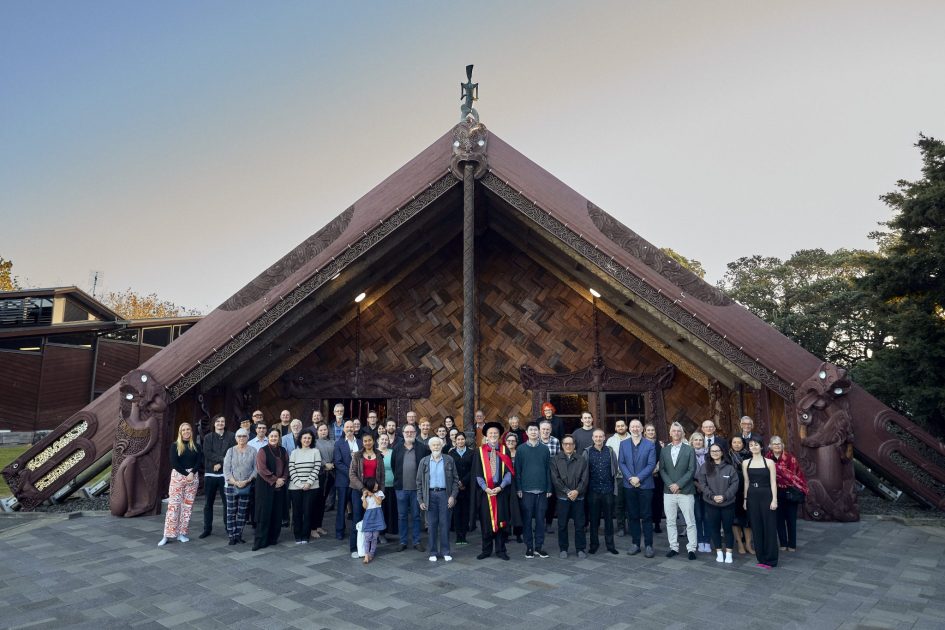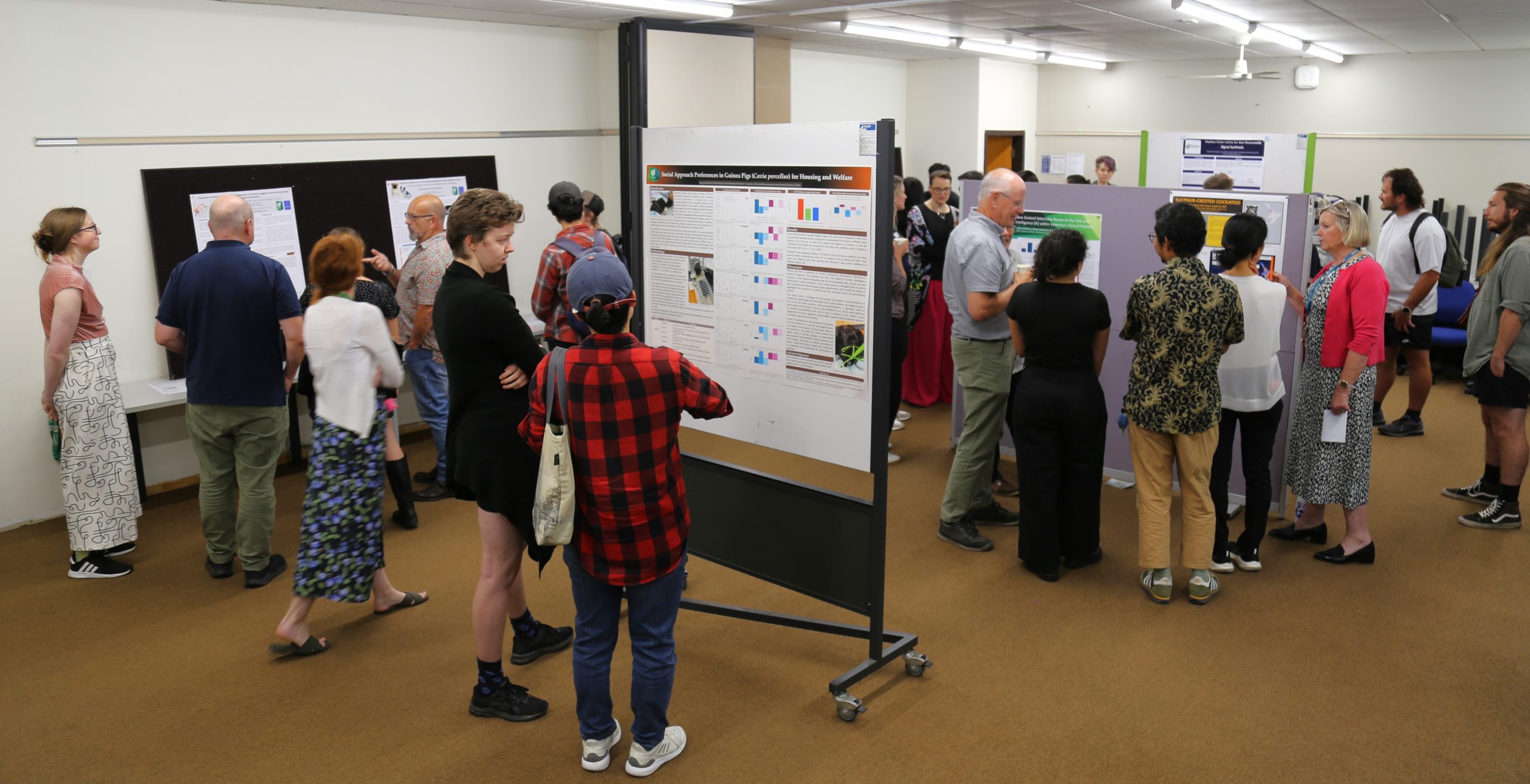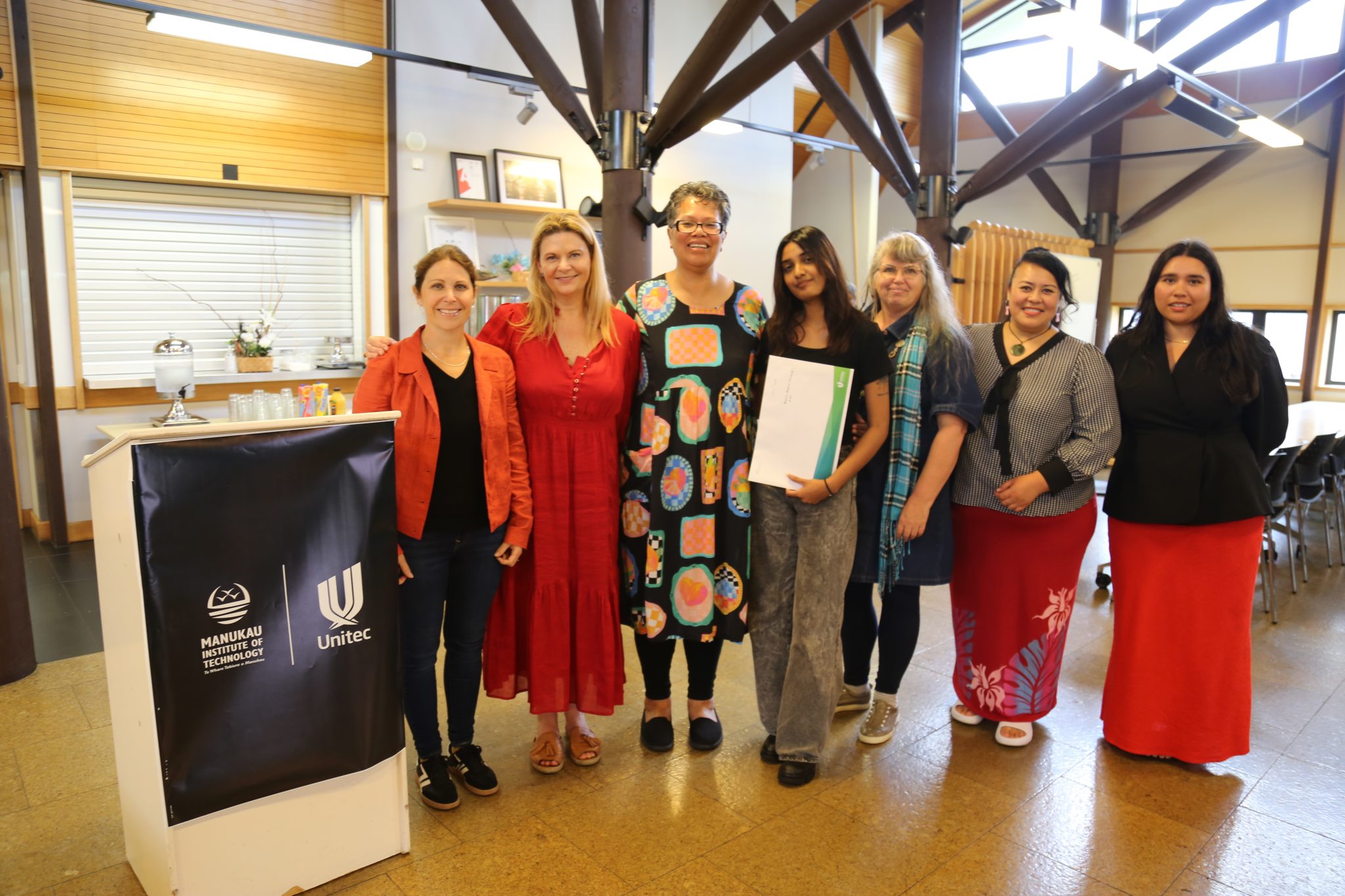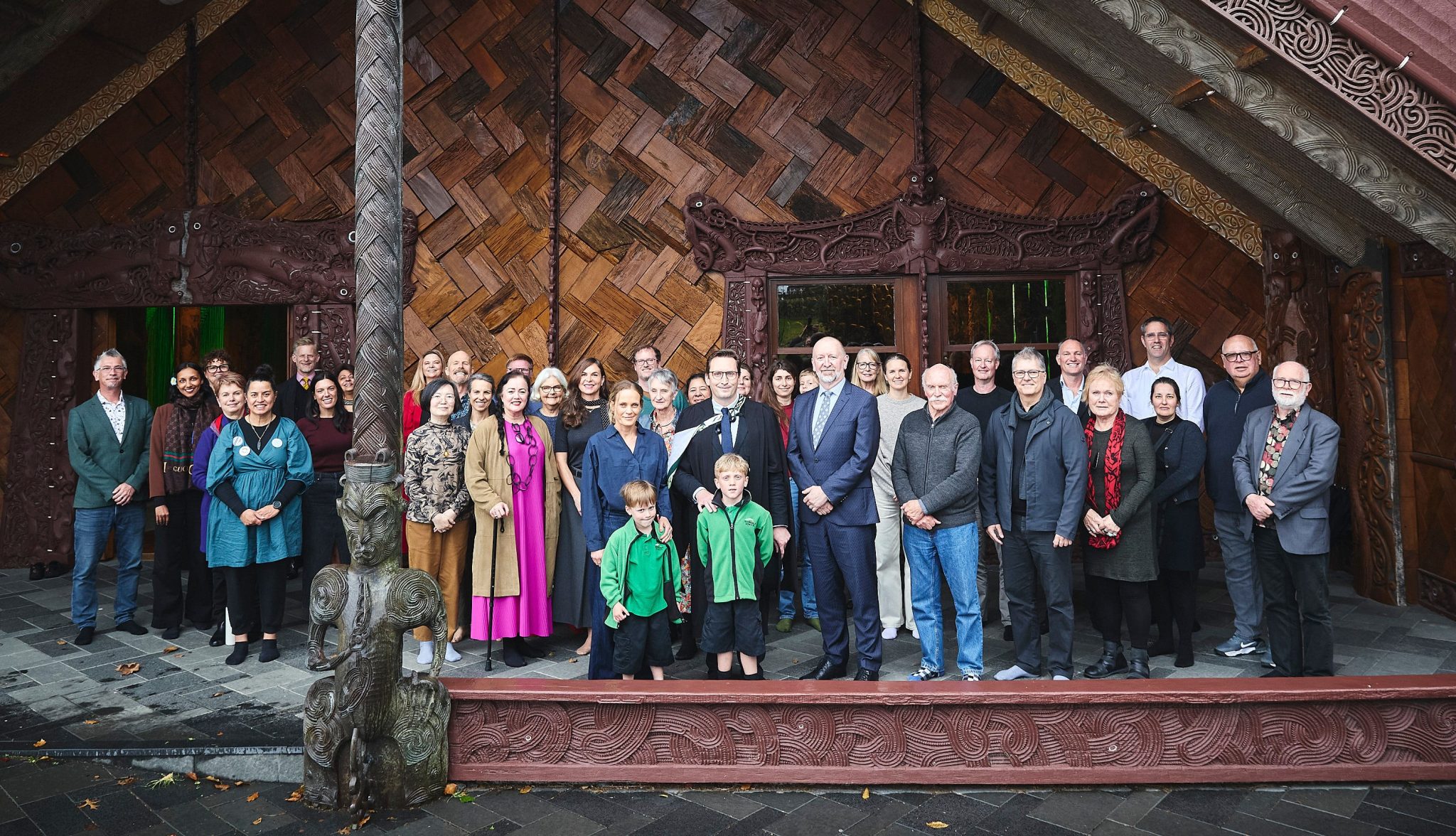Friends, colleagues and family gathered at Te Noho Kotahitanga Marae on Thursday to attend Prof. Peter de Lange’s reflection on a distinguished 42-year career in botany, biosystematics, and conservation.
Prof. de Lange’s Professorial Address was the first in a series of lectures taking place over the next five months, marking the work of five of Unitec’s finest academic leaders.
Following a pōwhiri welcome, Unitec Director – Research & Enterprise Tuapapa Rangahau, Professor Marcus Williams described Prof. De Lange as “a heavy hitter” in his field as one of Aotearoa’s leading botanists
The address focused on his relationships with people who have inspired, supported, and helped him throughout his career, some of whom were in attendance.

“You can’t do conservation without people – ‘hē tangata’ (it is people). They are the most important thing. If you can’t get them engaged in conservation – walk away,” he says.
Born in Hamilton in 1966 to migrant Dutch parents, Prof. de Lange always wanted to be a botanist.
He graduated with a Bachelor in Biological and Earth Sciences and a Master’s degree with first class honours in Palaeoecology and Tephrochronostratigraphy from the University of Waikato, then went on to complete a PhD in plant biosystematics at the University of Auckland.
Prof. de Lange has been teaching at Unitec’s School of Environmental and Animal Sciences since 2017.
In 2022, he was awarded the Excellence in Research award at the Unitec Staff Awards for his demonstration of Te Noho Kotahitanga values in his research leadership and collaborations, and his strong support of emerging and early career researchers.
Prior to that, he was a Principal Science Advisor for 27 years at the Department of Conservation.
He regularly publishes on plant taxonomy, conservation, threat listing and the flora of South Pacific and outlying islands around New Zealand.
Prof. de Lange is also a seasoned media commentator on field-based plant ecology and threatened species and leads national and international field trips in support of his research.
Peter was a recipient of the New Zealand Botanical Society Allan Mere Award (2006) and the prestigious Loder Cup (2017). He is also a Fellow of the Linnean Society and a lifetime member of the New Zealand Plant Conservation Network.
The high point of his career came in 1999 spear-heading the development of The New Zealand Threat Classification System, which replaced the International Union for Conservation of Nature (IUCN) in 2001. This system was tailored to deal with insular rarity (a feature of the New Zealand Biota) and is increasingly enshrined in environmental policy and law. He has been a co-author of three iterations of the system (2001, 2008, 2022).
Much of Prof. de Lange’s work in recent years has focused on the Chatham Islands (Rēkohu), where one quarter of NZ’s threatened biota resides. He is the chair of The Chatham Island Conservation Board and has been influential in channeling local conservation efforts into island-wide restoration by acting as an intermediary between the Minister of Conservation, the Department of Conservation, and the islanders (imi, iwi and Chatham Islanders).
During the post-lecture Q&A, Prof. de Lange reflected on his time at Unitec highlighting the strong relationships he’s maintained with his students after graduation.
“Becoming a scientist is a long winding road. I try to tell my students they should publish their work. It’s scary for them, but if you can mentor them through this process, then they start to believe they can do this,” he says.
“I don’t think a paper makes you a good scientist, it’s what you do. I get students to believe in their own abilities. If you can weather the criticism and stand up for your data, if you can accept you can sometimes get it wrong, you’re going to be a scientist. In science you don’t always get it right, but when you do, you saviour it.”
He also spoke proudly of Unitec’s commitment to ākonga learning.
“I have a great pride in this place. I like the the way this place feels and the feeling of rangatiratanga; the focus on individuals reaching their highest potential, expanding and deepening their talents and skills, thus strengthening and enhancing the whānau/family or collective,” he explains.

“For a lot of our students, the university system didn’t work for them. The challenge coming to Unitec was not so much teaching. If you can break through to a student who has a learning disability and is being treated appallingly by the education system, and you can see them flourish, then to me that’s a success.”
In his closing remarks, Unitec-MIT DCE Academic, Professor Martin Carroll said: “Throughout your talk, you made a lot of critiques, but you were also offering solutions and that is an example for all of us to follow. Thank for what you do and setting a stunning benchmark.”
Prof. de Lange was gifted a special pounamu carved by Kaihautu, Hohepa Renata.
The event ended with reflections and a prayer by Pae Arahi, Hare Paniora, followed by kai in Manaaki.




